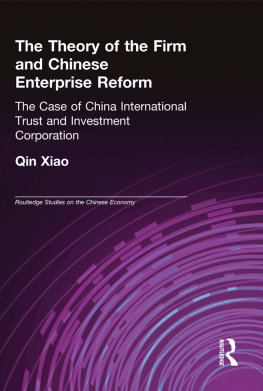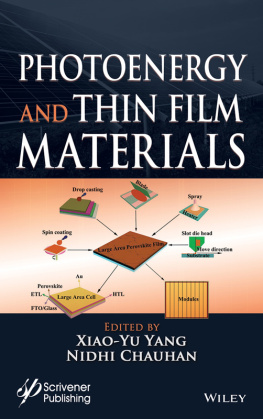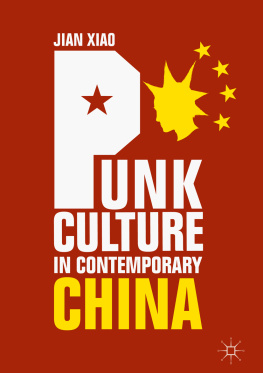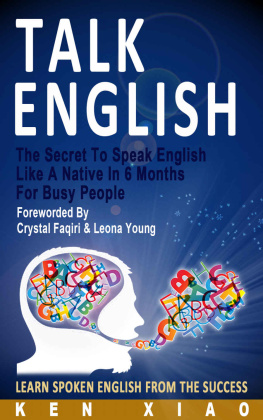Aria
My grandmother liked to tell this story:
The evening you were born, I looked out at the sky over Shanghai. The setting sun was breaking through the clouds. I had never seen such a beautiful sunset. I remember thinking that your life would be a resplendent tapestry, just like that palette of reds. I was sure of it.
That was a few weeks before Mao Zedongs proclamation of the Peoples Republic of China. Never again will the Chinese people be enslaved, he had declared on that occasion in Tiananmen Square. Rarely has a prophecy proved so true, and at the same time so false.

I hesitated a long time before telling my story.
My father often reminds me how useless it is to speak of the past:
What does it serve, Xiao-Mei? When you die, you shouldnt leave a trace. Even if you want to, its not possible. Your footsteps along lifes path are always erased by the sun, snow, and wind. He likes to add: Think of wild geesethey fly high in the sky, covering long distances without landing or leaving any tracks. Take them as examples, not the sparrows, which settle on the earth. The sparrow will never understand the dream of the wild goose.
Hes right. For quite some time I thought I didnt have any particular reason to writedont I express myself through music? I even thought that I didnt have the ethical right to do so. Among the Chinese of my generation, my suffering was not the worst, far from it.

But, as is the case in life, every being, every thing has two sides.
And I wanted to write. First, for those who had fallen victim to the Cultural Revolution. Forty years later, not much is said about this period, and I have often noticed how little is known in the West about these events.
I have had the opportunity to live in both China and the West, in three different countries. Through this, I have learned a lifelong lesson: it is critical to bring cultures together, to initiate dialogue among them. I also wanted to describe this experience, which I believe to be particularly important.
This book is made up of thirty chapterslike the thirty variations in Bachs masterwork, the Goldberg Variations. Thirty chapters plus an opening and closing aria, bringing the work full circle like times continuumlike the wheel of life.
I am often asked how a Chinese woman, brought up in such a distant cultural milieu, can play Bach. My hope is that after having read this book, the reader will understand and, above all, have the desire to listen, or re-listen, to Bach. I also hope that he or she will have the desire to read or reread Laozi, the great Chinese philosopher.
For these two sages are very much alike, and their two culturesChinese and Westernare not so dissimilar.
The Solemn Hour
I have witnessed many men
Silently weeping
In the night
(Tang Qi, The Solemn Hour)
There it stands, in my parents bedroom. The room is so small it takes up all the available space. The movers had a real struggle getting it through the door, stopping a number of times, sweat running down their faces. Out of curiosity, the neighbors file into the courtyard one after the other to peek through the window and observe what is going on. Finally, it is in place. Freed from the dirty cloths it was wrapped in, it makes its appearance.
I fearfully take refuge behind a chair. My mother draws near, circling, looking, and examining it. She opens its lid, and a name appears: Robinson . Its ivory keyboard gives off a pale glow that illuminates the shadowy room. For a few brief seconds, my mother lets her hand pass across the small, yellowed keys. A melody issues from the piece of furniture, rising into the room. It can talk? A smile has barely crossed my lips when my mother pulls her hand back and closes the lid. The mysterious voice falls silent.
My mother turns to us and sighs:
How happy I am

I didnt know what it was, a piano. I was barely three years old, and I had never seen anything like it. I was fascinated. I wondered where it had come from, this object that spoke when you touched it.
Strangely, my mother never played the piano. But every morning, she dusted it: her first act of housework.
Such dust! In Shanghai, there wasnt so much dust. Why did you bring me here? she would add, turning towards my father.
She never missed an opportunity to complain about Beijing. The weather was terrible, the city was polluted, and it was difficult to eat well. Sometimes in the morning when I got up, I had the impression that she had been crying. I would ask her what was wrong.
Its nothing, Xiao-Mei. The smoke from the stove has gotten into my eyes, she would answer.
I watched her decorate the piano with paper flowers, the way in China one adorns the jitan, the altar to ones ancestors. In the house we didnt have a jitan, but we did have a piano.
I had the impression that the piano was just for me.
I would open its lid and randomly bang on its ivory keys for the pleasure of hearing the sounds fill the room. If I went to one end of the keyboard, the pianos voice sounded like a dragon. At the other end, like a bird. Very quickly, however, I felt powerless and gave up. That certainly wasnt music.
Sometimes, when other children came to the house, I would show them how to strike the keys, and the cacophony would entertain us for a while. It was amusing for us, but not for my mother. One day, she firmly shut the lid.
OK, thats enough, I cant stand it anymore. Youre hurting itget out!
And the piano fell silent once again. No one touched it: neither she, nor I, nor anyone. Still, it had become a new member of our household.

Our apartment: two rooms for seven people, just over five hundred square feet within a siheyuan a low square of houses built around a small central courtyard. There was one water tap and one toilet for eleven families. Badly washed diapers hung from the windows. The floor was black and eternally damp, and the noise the mice made each night gnawing in the ceiling terrified me. Still, we were not the most unfortunate. The other residents of the siheyuan were even worse off, like the widow whose ten children all slept in one big bed.













